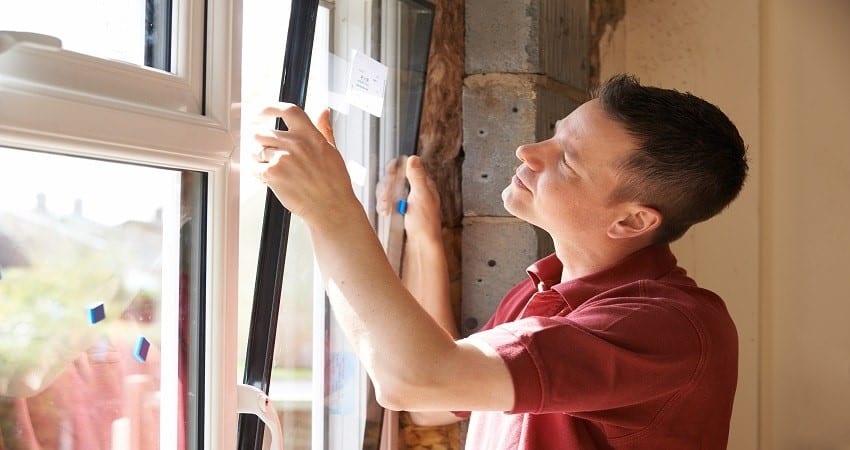As the seasons change, landlords may find their rental homes losing the fight against winter or summer heat. This often puts the spotlight on windows, not just as elements of beauty but as crucial players in energy conservation, tenant satisfaction, and safeguarding the property’s value. In the ever-shifting landscape of the UK’s rental market, grasping the intricacies of window replacement can elevate a landlord’s offering, making sure their properties stand out, adhere to regulations, and attract and retain happy tenants.
1. Understanding the Need for Replacement
Have you ever considered how important the windows in your rental home are to your renters’ overall satisfaction? Beyond its simple role of allowing light in and offering a view, windows have a considerable influence on energy efficiency and comfort. Recognising whether it’s time for a window panel replacement requires careful study of many telltale signs:
- Drafts and Air Leaks: These are typically the most obvious indications. If renters complain about cold air or an unexpected spike in heating expenditures, it’s time to examine the windows.
- Difficulty Operating: Windows that refuse to open or close are not just a security problem, but also a symptom of fundamental difficulties that may deteriorate with time.
- Condensation Between Panes: This indicates a failing seal, which reduces the window’s insulative characteristics.
- Visible Damage: Cracks, decaying frames, or twisted materials may detract from the aesthetics and operation of the windows.
Addressing these concerns as soon as possible will help to avoid more serious problems later on, such as water damage or higher energy costs, ensuring that your home remains a viable option for tenants.
2. Laws and Regulations for Window Replacement in Rental Properties
When it comes to replacing windows in rental homes, UK landlords have to follow a complicated maze of rules to guarantee compliance and maintain property standards. Here’s an outline of the main legislative frameworks:
- Building Regulations: Since April 1, 2002, all replacement windows in rental houses must adhere to particular building codes. These guidelines address thermal performance, safety, air supply, methods of escape, and ventilation. To be deemed a “controlled fitting”, every exterior window or door replacement must fulfil the criteria established by these laws. Non-compliance may result in landlord fines and expensive redo work.
- Competent Person Scheme: Landlords can make compliance easier by selecting installers certified with a Competent Person Scheme. These professions self-certify that their work complies with Building Regulations, removing the requirement for direct monitoring by local authority building control. The approach speeds up the process and gives renters proof of compliance when the work is done.
- Energy Efficiency and Safety Standards: Replacing windows in rental buildings also meets larger criteria for property safety and energy efficiency. The UK’s Housing Act of 2004 and Homes (Fitness for Human Habitation) Act of 2018 require rental homes to have adequate natural light, ventilation, and window safety.
- Prospective Law: Introduced in 2024, the Tenants Reform Bill calls attention to the evolving legal landscape that impacts both tenants and landlords. This law highlights the value, accessibility, and equity of the private rental market among other things. It also underlines how crucial it is to maintain rental properties—including their windows—in top shape to comply with upcoming regulations.
By keeping an eye on the rules and regulations, Landlords can ensure legal compliance and improve safety, comfort, and energy efficiency for window replacement projects.
3. Choosing the Right Windows
The argument over single glazed windows vs double- or triple-glazed windows—the more modern option—takes centre stage when choosing replacement windows for your rental home. Here, we’ll examine the factors that should influence your choice:
- Energy Efficiency: Windows that can keep heat out in the summer and during the winter are necessary due to the UK’s climate. Despite their initial lower cost, single glazed windows are not as thermally efficient as double- or triple-glazed models.
- Cost vs. Benefit: Weigh the initial investment against the energy bill savings over the long haul. Tenants who care about the environment may find more energy-efficient windows appealing, which may help landlords charge a higher rent.
- Historical and Aesthetic Considerations: Some windows have more aesthetic value than functional value, particularly in older structures where preserving the property’s original character is crucial.
- Sound Insulation: Multiple-glazed windows in urban houses may provide residents with a calmer living space by adding to the sound insulation.
Landlords may make an educated decision that balances cost, efficiency, and tenant attractiveness by considering these aspects, guaranteeing that their investment will ultimately pay off.
4. The Installation Process
Choosing a contractor for your window panel replacement job is similar to assigning someone to a key part in a play; it calls for considerable thought, a rigorous screening procedure, and faith in their ability to execute exceptionally well. To make sure you choose the best expert for the task, follow these steps:
- Research and Recommendations: Begin by making a list of possible contractors. A strong starting point for your search may be found in local business directories, online reviews, and referrals from other landlords.
- Quotes and Comparisons: Never accept the first price you are given. Get at least three bids so you can evaluate costs, turnaround times, and the amount of work involved. This phase may also help you detect any outliers and provide you with a sense of the market rate.
- Credentials and Experience: Check the contractor’s credentials and background, particularly about working with rental homes. A solid track record on related projects might be a comforting indication of their dependability and competency.
- Communication and Contract: Effective communication is essential. Ascertain that the contractor is aware of your demands and expectations. After you’ve made your decision, both parties may be safeguarded by a thorough contract that specifies the project’s parameters, budget, schedule, and warranties.
You can handle the installation procedure with confidence if you follow these guidelines and know that your property is in good hands.
5. Maintenance and Aftercare
The action continues even after the new windows are fitted. Maintaining and caring for your investment property can help it last longer and continue to give comfort and value for many years to come. Following are some tips to maintain the best possible condition for your windows:
- Frequent Cleaning: Give tenants instructions on how to keep the windows’ glass and frames clean to help prevent issues like broken seals or stuck windows and to preserve the property’s visual appeal.
- Inspections: Regular inspections identify minor issues before they become more serious. Look for indications of deterioration, such as leaks, drafts, or frame damage.
- Educate renters: Giving renters instructions on how to maintain the windows may have a significant impact. Damage may be avoided by following basic suggestions, such as avoiding prying open blocked windows and using the right cleaning supplies.
- Prompt Repairs: When an issue occurs, taking care of it right once might save further damage and perhaps expensive repairs. Whether it’s a broken glass or a malfunctioning lock, you can maintain your windows operating as intended by acting quickly.
By using these maintenance and repair procedures, you can guarantee that your windows continue to be a benefit rather than a drawback, enhancing the general attractiveness and functionality of your rental home.
Conclusion
While replacing windows in a rental property might be expensive, it is aimed at improving energy efficiency, tenant satisfaction, and property value. To get the most out of your window replacement investment, it’s critical to be informed about the direction that the UK private renting market is headed.












